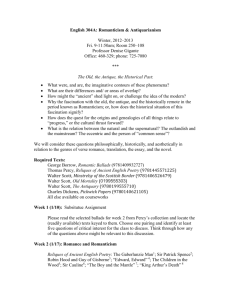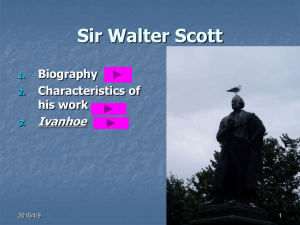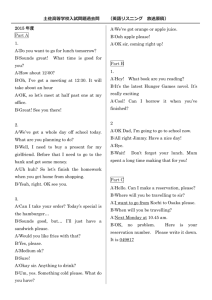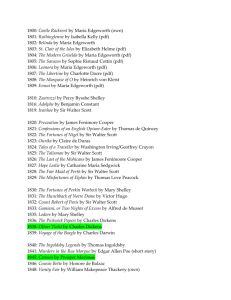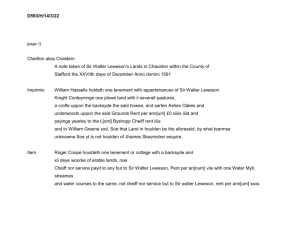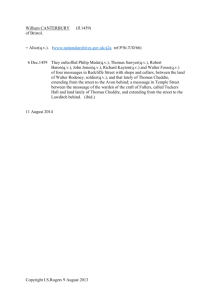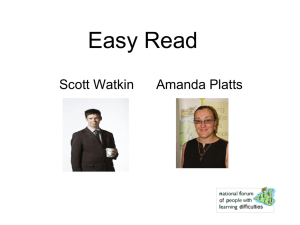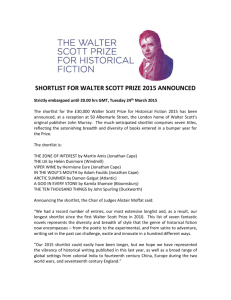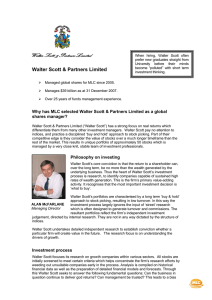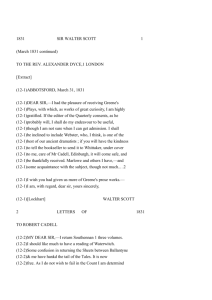English 304A: Romanticism & Antiquarianism Winter, 2012–2013 Fri
advertisement
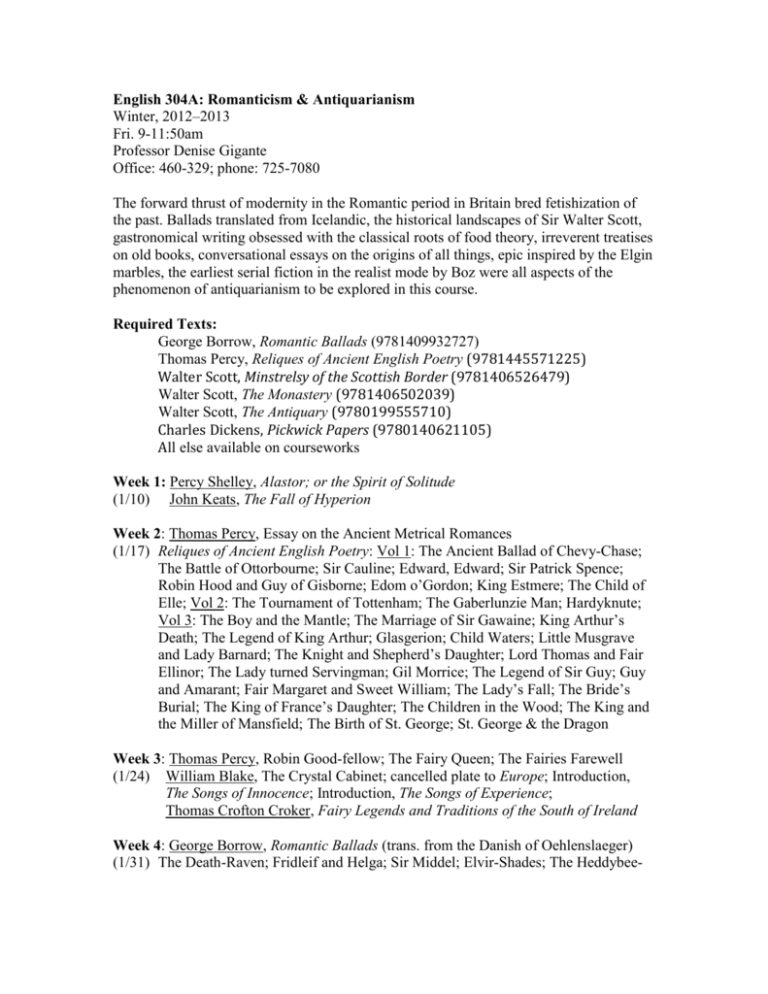
English 304A: Romanticism & Antiquarianism Winter, 2012–2013 Fri. 9-11:50am Professor Denise Gigante Office: 460-329; phone: 725-7080 The forward thrust of modernity in the Romantic period in Britain bred fetishization of the past. Ballads translated from Icelandic, the historical landscapes of Sir Walter Scott, gastronomical writing obsessed with the classical roots of food theory, irreverent treatises on old books, conversational essays on the origins of all things, epic inspired by the Elgin marbles, the earliest serial fiction in the realist mode by Boz were all aspects of the phenomenon of antiquarianism to be explored in this course. Required Texts: George Borrow, Romantic Ballads (9781409932727) Thomas Percy, Reliques of Ancient English Poetry (9781445571225) Walter Scott, Minstrelsy of the Scottish Border (9781406526479) Walter Scott, The Monastery (9781406502039) Walter Scott, The Antiquary (9780199555710) Charles Dickens, Pickwick Papers (9780140621105) All else available on courseworks Week 1: Percy Shelley, Alastor; or the Spirit of Solitude (1/10) John Keats, The Fall of Hyperion Week 2: Thomas Percy, Essay on the Ancient Metrical Romances (1/17) Reliques of Ancient English Poetry: Vol 1: The Ancient Ballad of Chevy-Chase; The Battle of Ottorbourne; Sir Cauline; Edward, Edward; Sir Patrick Spence; Robin Hood and Guy of Gisborne; Edom o’Gordon; King Estmere; The Child of Elle; Vol 2: The Tournament of Tottenham; The Gaberlunzie Man; Hardyknute; Vol 3: The Boy and the Mantle; The Marriage of Sir Gawaine; King Arthur’s Death; The Legend of King Arthur; Glasgerion; Child Waters; Little Musgrave and Lady Barnard; The Knight and Shepherd’s Daughter; Lord Thomas and Fair Ellinor; The Lady turned Servingman; Gil Morrice; The Legend of Sir Guy; Guy and Amarant; Fair Margaret and Sweet William; The Lady’s Fall; The Bride’s Burial; The King of France’s Daughter; The Children in the Wood; The King and the Miller of Mansfield; The Birth of St. George; St. George & the Dragon Week 3: Thomas Percy, Robin Good-fellow; The Fairy Queen; The Fairies Farewell (1/24) William Blake, The Crystal Cabinet; cancelled plate to Europe; Introduction, The Songs of Innocence; Introduction, The Songs of Experience; Thomas Crofton Croker, Fairy Legends and Traditions of the South of Ireland Week 4: George Borrow, Romantic Ballads (trans. from the Danish of Oehlenslaeger) (1/31) The Death-Raven; Fridleif and Helga; Sir Middel; Elvir-Shades; The Heddybee- Spectre; Sir John; May Asda; Haager and Eliza; Saint Oluf; The Heroes of Dovrefeld; Sven Vonved; The Tournament; Vidrik Verlandson; Elvir Hil; Waldemar’s Chase; The Merman; The Deceived Merman; The Elder-Witch Thomas Percy, “Essay on the Ancient Minstrels in England” Week 5: Walter Scott, Minstrelsy of the Scottish Border; Tales of Wonder (2/7) Glenfinlas, or Lord Ronald’s Coronach; The Eve of St. John; Cadyow Castle; The Grey Brother; Thomas the Rhymer; The Fire King; Frederick and Alice; the Wild Huntsmen; The Erl-King; War Song; the Norman Horse-Shoe; The Dying Bard; The Maid of Toro; Helvellyn Week 6: Walter Scott, The Monastery (2/14) Week 7: Walter Scott, The Antiquary (2/21) Week 8: William Hone, The Table Book: Scipio’s Shield; Petrarch’s Inkstand; Essay on (2/28) Ancient Remains; On Public Houses and Inns; The Quintain Isaac D’Israeli, Curiosities of Literature: Origin of the Materials of Writing; Orthography and Orthoepy; The Invention of Priinting; Early Printing; The First English Printer; Early Writers, Their Dread of the Press, The Transition to Authors by Profession Week 9: Dick Humelbergius Secundus (pseud.), Apician Morsels (3/7) On the Productions of the Early Writers on Diet; Of Dieting and Cookery, referable to both Ancients and Moderns; De Re Culinaria; Accont of a Curious Book; A Short Dissertation on the Origin of Dentiscalps, or Toothpicks Week 10: Charles Dickens, Pickwick Papers, through chap. 12 (3/14) Isaac D’Israeli, “Literary Forgeries” Rosemary Sweet, “Antiquaries and Antiquities in Eighteenth-Century England”
